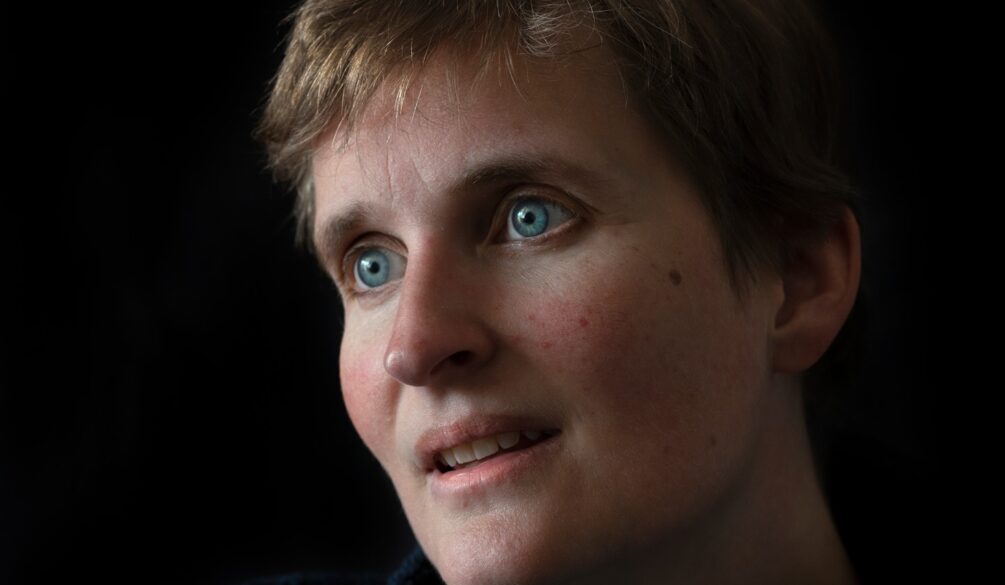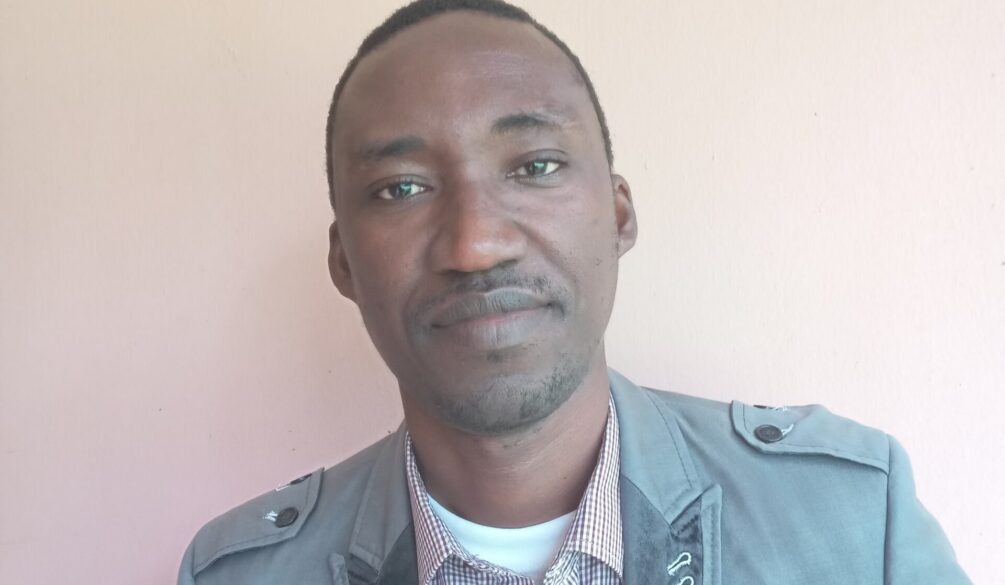2025
Call for Papers: AASR Conference 2026
10th Conference of the African Association for the Study of Religions
Regional Conference of the
International Association for the History of Religions
Spirituality, Gender, and Agency
in African Religions
Gaborone, Botswana, 28 to 30 July 2026
The African Association for the Study of Religions (AASR) invites proposals for individual papers, panels, roundtables, and poster presentations for its biennial conference to be held at the University of Botswana, Gaborone, Botswana, from 28 to 30 July 2026.
2025
Call for Papers: urban-religious worldmaking in Africa
urban-religious worldmaking in Africa
CALL FOR PAPERS
16-20 September 2025
Stellenbosch Institute for Advanced Study, South Africa
Funded by the German Research Foundation’s “Point Sud” programme
2025
Scholar of the Month
“AASR conferences were a welcome opportunity to connect with other researchers and keep in touch with the latest developments in scholarship.”
2024
Researcher of the Month
In this edition of AASR Researcher of the Month, the focus is on a mid-career scholar, Ibukunolu Isaac Olodude of the Obafemi Awolowo University, Nigeria. In this interview, he recounts the impact of the Association on his career trajectory.
Interviewer: Tell us about yourself; your academic background and your research interests.
I am Dr. Ibukunolu Isaac Olodude, a Researcher and Lecturer in the Department of Linguistics and African Languages, Obafemi Awolowo University, Ile-Ife, Nigeria. I hold a B.A. degree (2006) in Yoruba Language and Literature from Obafemi Awolowo University, Ile-Ife, Nigeria, where I graduated as the best male student in the Faculty of Arts. I also possess an MA (2012) and a PhD degree (2024) in Linguistics from the University of Ibadan, Nigeria. My doctoral research is multidisciplinary and intersects the fields of Linguistics, Religious Studies, Migration Studies, and Sociology. My areas of specialization are African Studies, Sociolinguistics, Applied Linguistics, Critical Discourse Analysis, and African Gender/Sexuality Studies, while my research interests are language, religion, and society; gender and identity studies; migration and environmental studies. I am a member of the West African Linguistic Society (WALS) and the African Association for the Study of Religions (AASR). I am also a Fellow of the Ife Institute of Advanced Studies (IIAS).
Interviewer: Could you give us insight into your current research project(s)?
My current research projects revolve around the ongoing debates about gender, sexuality, and diversity in African societies. They focus on the traditions and language of the Yoruba people of West Africa and explore whether the Yoruba do or allow for queerness. The research aims to advance these debates through cultural hermeneutics and linguistic analysis. One of the approaches is to examine what the understanding of queerness is, in the Yoruba indigenous religion. The research also examines how non-normative categories of gender and sexuality are articulated or silenced in the Yoruba oral literature (including the sacred Ifá literary corpus), as well as in the lexicon of the contemporary Yoruba language. The project also seeks to carry out critical discourse analysis of gendered discourses both in gendered proverbial expressions and in Yoruba movies.
Interviewer: In what ways do you think your research addresses pressing societal challenges?
Queer communities in Africa continue to face discrimination because of the narration that the concept of queerness is un-African with several national policies and legislation outlawing the concept. This research will therefore contribute significantly to gender and queer studies in Nigeria and Africa as a continent. Findings from the research will provoke a social movement towards language engineering to capture other forms of identities within queer groups which lack linguistic expressions in the Yoruba language. The research digs deep into the Yoruba language and literature, as well as Yoruba indigenous religion to spotlight how non-normative gender and sexualities are articulated or silenced. It will thus help both national and international governments and non-governmental organisations in understanding how the Yoruba language and literature capture culturally gendered expressions and queerness. The research findings will be of immense help to both national and international gender and human rights activists by providing more insights into gender and sexuality issues in Nigeria and Africa. Overall, my research has continued to bring to the fore the place of indigenous knowledge in solving global societal challenges and issues.
Interviewer: How do you see your career and research develop and evolve in the near future?
I became a member of the AASR through Professor Adriaan van Klinken of the University of Leeds, and since then, my research continues to align with his research interests, especially in the fields of African religions, ecologies, queer and gender studies. My career/research continues to develop along the longstanding vision and strategy of Prof. van Klinken, to promote and advance African queer and cultural studies, with a particular interest in religion and queerness in African contexts. I hope to continually establish research collaborations through my membership of the AASR that will see me through to the peak of my career and make me an outstanding scholar in African Studies.
Interviewer: From your wealth of experience, what advice would you give younger scholars?
My advice to younger and upcoming researchers and scholars is in two folds. First, the role of mentorship in career development cannot be over-emphasized. In the words of the famous English scientist, Sir Isaac Newton, “If I have seen further, it is by standing on the shoulder of giants”. My candid advice is that they must recognize the place of mentors in their career growth and development and they should leverage their mentors’ wisdom, expertise, and scholarship. And of course, a place to find such worthy mentors is an association such as the AASR where I found mine. Second, an African proverb says, and I quote, “if you want to go fast, go alone; if you want to go far, go together”. This proverb underscores the need for teamwork rather than being a lone ranger. Here, my advice to younger researchers is to avoid being fixated on one particular research area, rather they should get involved in interdisciplinary and multidisciplinary research that seeks to find solutions to societal challenges from multiple points of view.
Interviewer: What role has the AASR played in your career growth?
Since becoming an active member of the African Association for the Study of Religions (AASR), my academic career has continued to be refined and my research focus sharpened, especially following my participation in a British Academy-funded Writing Workshop convened by Professor van Klinken, at Nairobi Kenya in July 2023. I was also privileged to participate in the AASR conference which was held at the University of Nairobi in August 2023. At the conference, I presented a paper entitled “Kukurúùkúù: Ecospiritual Implications of the Sounds of the Cockcrow in Yoruba Rural Dwellings”. The paper has since been published in the Journal of the British Academy. I was also able to attend the2024 Conference jointly organised by Calvin University, Nagel Institute, and the African Association for the Study of Religions (AASR) with the theme ‘Engaging African Realities’ in Abuja, Nigeria. Through some connections made in the Association, I also participated in two academic conferences in the United Kingdom in August 2024: The African Studies Association (ASA-UK), and the British Association for the Study of Religions (BASR), respectively. At the ASA-UK conference, I presented a paper titled ‘Binary versus Queerness: Negotiating Gender and Sexuality Discourses in Yoruba Films and Expressions’, while at the BASR conference, I presented a paper on ‘In the City of 201 Gods: Religion, Identity Contestations and Construction among Muslim Ile-Ife Indigenes’. Membership of the AASR and the conference opportunities I have participated in have offered me scholarly platforms to present my research and get positive feedback.
Interviewer: Tell us the challenge(s) you encountered in your career and how you surmounted them. What lessons did you learn? Prior to my becoming a member of the AASR, the major challenge I encountered in my career was the absence of opportunities to present my research on a global stage. I had always desired to get a platform to connect with renowned scholars to receive mentorship and positive feedback on my research. Participation in international conferences and workshops undoubtedly requires funding which has also been a major challenge to me. However, to overcome these challenges, I was determined never to lower the standard of my research and to also keep pushing on until I eventually got in touch with some mentors through my membership in the AASR. Since then, I have been provided with global platforms, which I so much desire, for the presentation of my research.



